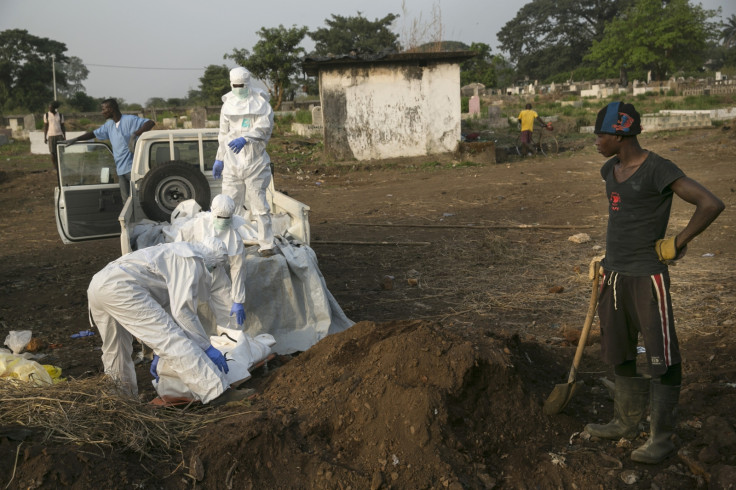Sierra Leone: Ebola crisis continues as 300 babies are buried a week

Fears grow as unsafe burials of Ebola victims are believed responsible for up to 70% of new infections.
At the Kingtom burial site run by the Irish charity, Concern, around 50 graves are dug every day and are battling to keep up with the number of deaths.
There are rows upon rows of graves, says Trevor Jessome from Concern. "These burials here have all been done in the last two weeks," he told Sky News. "We average about 50 a day."
Burial teams suit up in order to protect themselves from the Ebola virus. As an extra precaution, authorities double-wrap every body and seal them in thick plastic bags, heavily doused in disinfectant.
After burials, the teams disinfect, burn and then bury all outer layers of protective clothing. They need to repeat this procedure around eight times a day.
"When I first came here I was like, 'Wow, this is overwhelming,'" says Mr Jessome, "But now I am having to get used to it. You have to, to carry on in Sierra Leone."
In Guinea, Mamadi Kourouma, a volunteer with the Red Cross Society says there is still a great deal of fear and a lack of education about Ebola.
"Someone has to do the work and people are frightened. We have been trained to manage these bodies in order to avoid new infections. If we do not do it, who will?" he says.
"We strive to comply with strict rules when managing dead bodies and before we return home, we disinfect ourselves with a chlorine solution." This is how he protects himself, his family, and his girlfriend.
"In the beginning, my girlfriend shunned me and was frightened when we were together. She did not accept to be closer to me, but now after educating her, she has changed her attitude. As a volunteer, she understands that I could not remain idle and leave my community continuing to die. Now she wants to join the Red Cross."
© Copyright IBTimes 2025. All rights reserved.




















